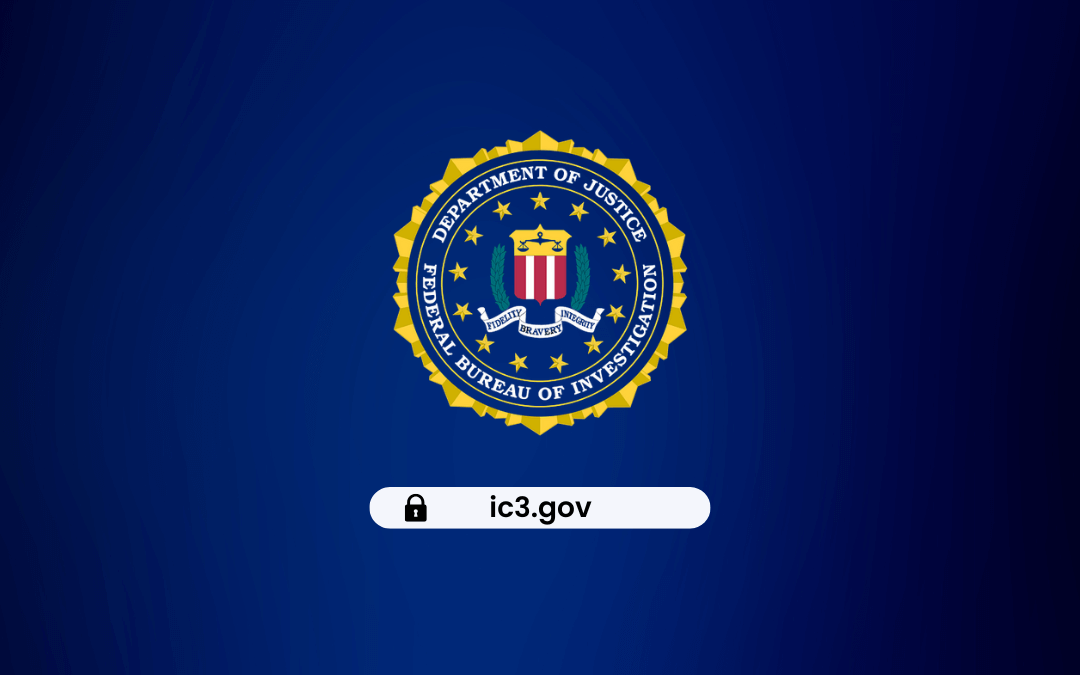In an era where deepfakes, AI-generated scams, and counterfeit websites proliferate, cybercriminals have sunk to a new low: creating fake FBI portals that pose as the official site. The FBI’s Internet Crime Complaint Center (IC3) recently issued a stark warning about fraudulent websites mimicking its official portal, ic3.gov. These fake FBI portals lure victims into submitting sensitive personal and financial information under the guise of filing legitimate crime complaints. For small businesses—already stretched thin by tight budgets and lean teams—this scam is a chilling reminder that trust is a luxury in the age of “fake everything.” Here’s how these scams work, why they’re a growing threat, and concrete steps your small business can take to stay safe.
The Scam: A Wolf in FBI Clothing with Fake FBI Portals
The FBI’s IC3 is a lifeline for reporting cybercrimes, from phishing emails to ransomware attacks. But scammers have weaponized its credibility, crafting fake FBI portals that mirror the official site’s design and branding. These impostor websites trick users into entering personal details—names, addresses, Social Security numbers, bank account info—under the pretense of filing a complaint. Some even demand cryptocurrency payments to “process” reports or “recover” stolen funds, preying on desperate victims of prior scams.
Once submitted, this data fuels a cascade of crimes: identity theft, financial fraud, or even targeted spear-phishing campaigns against businesses. The FBI’s alert, issued this month, underscores the sophistication of these fake FBI portals, which often use convincing domain names, logos, and layouts to deceive even savvy users. In 2024 alone, the IC3 reported over 800,000 complaints, with losses exceeding $12.5 billion—numbers that fake FBI portals exploit to amplify the damage.
Small businesses are particularly vulnerable. A single employee falling for a fake FBI portal could expose customer data, banking credentials, or proprietary information, triggering financial losses, regulatory fines, and reputational harm. In an age where AI can churn out convincing forgeries in seconds, these scams are only getting harder to spot.
The Bigger Picture: Fake Everything, Everywhere
This isn’t just about fake FBI portals—it’s a symptom of a broader epidemic. From deepfake videos of CEOs authorizing fraudulent payments to AI-crafted phishing emails that mimic your CFO’s tone, the internet is awash with deception. Small businesses, often lacking dedicated IT security teams, face an uphill battle. Scammers know this and target SMBs with precision, exploiting trust in institutions like the FBI to lower defenses.
The stakes are high: a 2023 study found that 60% of small businesses hit by a cyberattack shut down within six months. With fake FBI portals, the risk isn’t just data theft—it’s the erosion of trust in legitimate channels. If you can’t trust the FBI’s website, what can you trust? For small businesses, staying vigilant in this landscape requires a mix of skepticism, education, and proactive defenses.
Concrete Guidance: Safeguarding Your Small Business
To protect your business from fake FBI portals and similar scams, adopt these practical, actionable steps tailored for small teams with limited resources:
- Verify URLs Before Clicking or Submitting Data
- Action: Always check the website address. The official IC3 portal is ic3.gov—nothing else. Look for misspellings, odd domain extensions (e.g., .co instead of .gov), or extra characters.
- Tip: Bookmark the real ic3.gov and use it directly. Avoid clicking links in emails or social media posts claiming to lead to the IC3, as these may redirect to fakes.
- Tool: Use browser extensions like uBlock Origin or Malwarebytes Browser Guard to flag suspicious domains.
- Train Employees to Spot Red Flags
- Action: Conduct quarterly 15-minute training sessions to teach staff how to recognize phishing and fake FBI portals. Highlight warning signs: urgent language, requests for sensitive data, or demands for crypto payments.
- Tip: Use free resources like the Cybersecurity and Infrastructure Security Agency’s (CISA) phishing awareness toolkit to create engaging training.
- Why It Matters: Employees are your first line of defense. A single click on a fake FBI portal can compromise your entire network.
- Implement Multi-Factor Authentication (MFA) Everywhere
- Action: Enable MFA on all business accounts—email, banking, cloud services—to add a layer of protection if credentials are stolen via fake FBI portals.
- Tip: Use authenticator apps like Google Authenticator or Authy instead of SMS-based MFA, which can be intercepted.
- Cost-Saver: Free MFA options are available from providers like Microsoft and Google for small business accounts.
- Secure Your Website and Customer Data
- Action: Ensure your own website uses HTTPS and a reputable SSL certificate to build trust and prevent your site from being mimicked. Regularly update your content management system (e.g., WordPress) and plugins to patch vulnerabilities.
- Tip: Use services like Cloudflare’s free plan to add security and monitor for suspicious traffic.
- Why It Matters: A secure site reassures customers and reduces the risk of your brand being spoofed in scams.
- Establish a Cyber Incident Response Plan
- Action: Create a simple one-page plan outlining who to contact (e.g., your IT provider, bank, or the real IC3) if you suspect a breach or fall for a fake FBI portal. Include steps to freeze accounts and notify customers.
- Tip: Download CISA’s free incident response template for small businesses to get started.
- Why It Matters: Quick action can limit damage. The FBI emphasizes reporting to ic3.gov immediately if you’ve interacted with a fake FBI portal.
- Vet Third-Party Vendors Carefully
- Action: If you outsource IT or cybersecurity, verify the vendor’s legitimacy through references and reviews. Scammers may pose as recovery services linked to fake FBI portals.
- Tip: Check vendor credentials on platforms like the Better Business Bureau or ask for case studies from similar-sized businesses.
- Why It Matters: Fake vendors can exploit trust to steal data or funds under the guise of “helping” you recover.
- Stay Informed with Trusted Sources
- Action: Subscribe to free cyberthreat alerts from the FBI’s IC3, CISA, or trusted security blogs. Share key updates with your team via a monthly email or Slack channel.
- Tip: Follow the FBI’s official X account (@FBI) for real-time scam warnings, but always verify links before clicking.
- Why It Matters: Knowledge is power. Staying ahead of scams helps you act before they hit.
The Bottom Line: Trust, but Verify
The rise of fake FBI portals is a wake-up call for small businesses navigating a digital world where authenticity is under siege. By fostering a culture of skepticism, securing your systems, and educating your team, you can shield your business from these insidious scams. The FBI’s advice is clear: stick to ic3.gov, report suspicious sites immediately, and never send money to unverified entities. In an age of fake everything, your best defense is a proactive offense—because when hackers impersonate the feds, only vigilance keeps you one step ahead.
Click here to read more blog articles!

